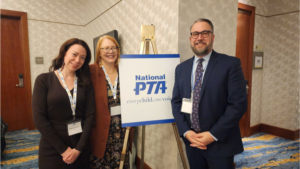Survivor stories matter
Here at the
ATN blog, we publish a lot of posts written by parents. This makes sense. After all, parents founded ATN, and supporting families constitutes one of our core missions. We also have a fair number of posts by therapists. Again this makes sense. Effective therapy is an integral part of healing childhood trauma. And we have a few posts here and there from the teacher’s perspective. This too fits one of our core programs,
Creating Trauma Sensitive Schools. We don’t hear a lot from one important group, however–childhood trauma survivors. Yes, we have
Janyne McConnaughey and
Cis White, whom you should definitely read, but most of our stories are told from other points of view. It thus gives me great pleasure to introduce you to another survivor. For her protection, I’ll call her H.J.
Layers of trauma
In her first message to me, H.J. wrote “For me, my trauma has many layers–all of it combined has ultimately left me struggling to feel human most of the time.” As I read through all she sent, I realized truer words have rarely been spoken. H.J.’s trauma is indeed multi-layered, both physical and mental, the product of a complex interplay of medical illness and family dysfunction.
As a young child, H.J. doctors incorrectly diagnosed her with cerebral palsy. When she was in her 20s, doctors identified her condition as dystonia. The
Dystonia Medical Research Foundation, describes this as “a neurological disorder that causes excessive, involuntary muscle contractions.” Although it is impossible to know for sure, doctors suspect that this medical error may have cost H.J. her mobility. Had the correct diagnosis been made when she was a child, perhaps she would not now find herself confined to a wheelchair.
H.J.’s family life made this situation many times worse. Her parents had what she describes as “a volcanic and toxic relationship.” Her mother eventually left her father, which landed her and H.J. in a women’s shelter for a few months. Ultimately, her mother left her and H.J. went to live with her father.
Things continued to slide downhill. H.J. suffered neglect as well as verbal, physical, sexual, and psychological abuse. Furthermore, her physical health, limited mobility, and her father’s complete control over her life, left her in almost total isolation. In her 20s, she moved into an accessible apartment of her own. Unfortunately, it is located uncomfortably close to her father’s home, so she does not yet feel safe or free.
A way out
Imagine trying to make a life for yourself while in a wheelchair, in a city short on accessibility and long on wintry weather. Imagine doing that after years of trauma. Then subtract almost every resource, most notably the support of a loving family. Yes, there were social workers involved, but they could only do so much. Try to imagine the loneliness, the fear, the pain. In H.J.’s shoes, would you be able to find a way out, or at least around?
Somehow, gradually, H.J. has. Trauma researchers and organizations such as the
National Child Traumatic Stress Network have identified resilience as a key factor in recovering from trauma. From what I’ve read, H.J. has plenty of it. She was neglected and left alone in her room for long stretches of time with only her computer for a companion. Yet she found a way to transform that time into an opportunity to advocate for herself and others at the local, national, and international levels. She has become a self-published author. She founded various online initiatives for fair and accessible housing, men’s wellness, and suicide prevention. H.J. graduated college with honors and plans to relocate overseas to a place that is more physically and socially welcoming to people with disabilities. She also expects to feel safer there, as it will put thousands of miles between herself and her abuser.
The need to be heard
The thing that may have struck me most in my correspondence with H.J. is how rarely she feels heard. Certainly not by her neglectful and abusive family, but also by some of those to whom she reached out for help and protection–law enforcement, social services, other government entities. This was in many ways the hardest part of reading H.J.’s story. It wasn’t just the “what happened,” but also the fact that so few listened. Showing vulnerability, especially after severe trauma, is scary. I have seen that in my own child as he processes the many early hurts he suffered. Yes, he has a family who loves him and wants to help… and that is not enough. The voices of trauma survivors remind me to listen closely and try my best to see things as he might.
What comes next
At one point, I asked H.J. what she would say to encourage other trauma survivors on the path to healing. Here is a slightly edited version of her response:
I don’t believe the popular notion that things “make you” stronger, and I will never “thank” my abuser for doing me wrong because I don’t believe in that. But these experiences have been enough for me to get out of my own way and introduced a greater, more fortified sense of self-esteem and personal confidence. I am not “tougher”; no, I am simply softer with myself and I’ve stopped internalizing so many things. I feel like I’m on my way to breaking generational curses, which has been a lifelong goal. I also think that many professionals and new graduates (in social work, law, and other fields) might be able to learn from this. In that way, it’s good that something this horrible can be turned into something to be learned from, something that has some safe educational value. That gives me an amount of peace and hope.
This does not mean H.J.’s journey has ended. If anything, it may have only just begun. What’s more, at
ATN we know that healing does not happen once and then it’s done. Life comes at us, and when it does, we find ourselves digging through those layers again, processing and re-processing the past. What an honor to meet trauma survivors who are doing that work. Thank you, H.J., for telling your story.



